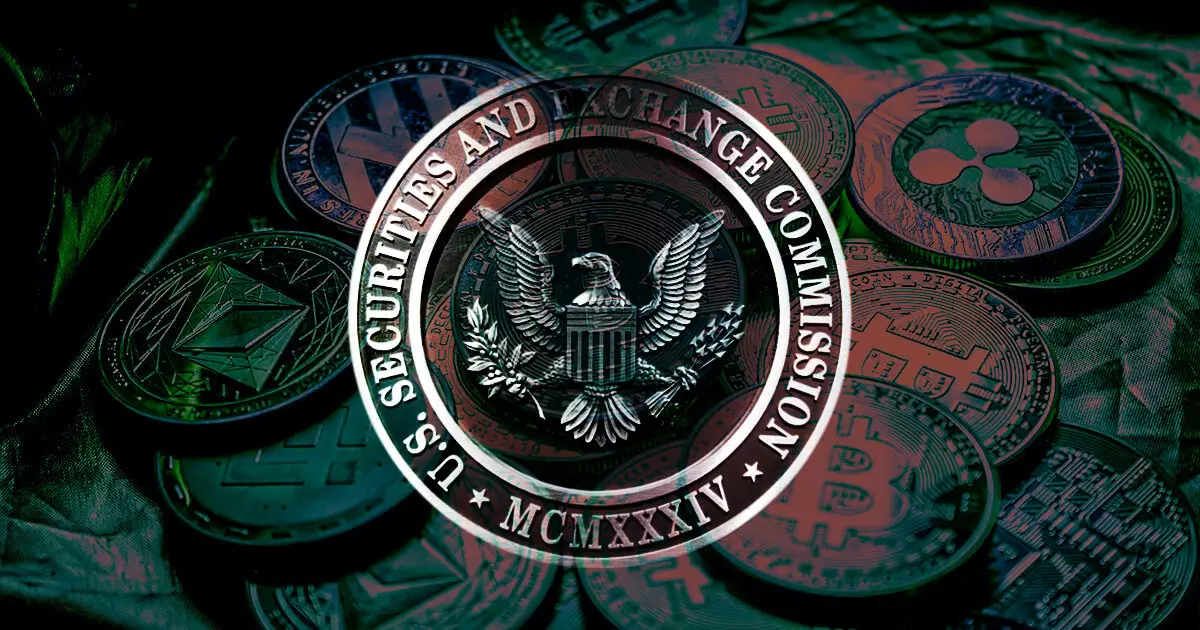The regulatory landscape for cryptocurrencies in the United States is poised for a significant transformation as the U.S. Senate Banking Committee debates the renomination of Caroline Crenshaw to the Securities and Exchange Commission (SEC). Since her appointment in August 2020, Crenshaw has gained notoriety for her firm opposition to cryptocurrency initiatives, including being one of the key dissenters against the approval of spot Bitcoin exchange-traded funds (ETFs). The outcome of this Senate decision is not just a matter of personnel; it represents a broader ideological battle over the future direction of cryptocurrency regulation.
Caroline Crenshaw’s resistance to the crypto market is not a mere political stance; it reflects a deeply held conviction that the burgeoning asset class poses risks to investors and the broader financial system. During her dissent concerning the ETF proposals, she articulated her fear that their approval would set a dangerous precedent, claiming that such moves would ultimately harm investors whom the SEC is supposed to protect. Her letter condemned the decision as “unsound and ahistorical,” arguing that this endorsement of digital assets could lead to future failures that would reverberate through the investment community.
Other SEC members, including Jaime Lizárraga, echoed her skepticism but did not publicly align with her dissent, which raises questions about the unity and direction of the Commission. Crenshaw’s stance has sparked criticism not only from industry insiders but also from analysts like James Seyffart, who described her as more vehemently anti-crypto than even SEC Chair Gary Gensler, a figure who has already faced scrutiny for his stern approach to digital asset regulation.
The impending Senate vote on Crenshaw’s renomination has drawn the ire of the cryptocurrency community. Prominent figures in the space, such as Coinbase’s Emilie Choi, have publicly labeled Crenshaw as “anti-crypto,” expressing frustration over perceived efforts by Senate Banking Chair Sherrod Brown to push through an unfavorable appointment before potentially losing his position. This sentiment resonates broadly among crypto advocates, who feel that Crenshaw’s continued presence on the SEC could significantly hinder the industry’s growth and innovation.
Alexander Grieve, representing the perspectives of crypto investment firms, aptly characterized the situation as a “last gift” to the industry, indicating a sense of urgency and perhaps desperation among stakeholders who hope to influence the regulatory environment more favorably. Should the Senate confirm Crenshaw, her term could extend until 2029, potentially solidifying the SEC’s stringent stance on crypto regulation for years to come.
In a startling twist to the regulatory narrative, former SEC Commissioner Paul Atkins, known for his pro-crypto stance, has been appointed by President-elect Donald Trump to take over as SEC chairman. This nomination has been met with widespread enthusiasm from the cryptocurrency industry, which anticipates a shift towards a more liberal regulatory framework under Atkins’ guidance. His historical advocacy for free-market principles suggests a significant departure from the cautious approach promoted by Gensler and Crenshaw.
Atkins’ focus on clarity within convoluted financial markets could prove beneficial, allowing innovations in the cryptocurrency space to flourish rather than suffocate under bureaucratic red tape. Advocates see his nomination as urgently needed, emphasizing that the regulatory body must adapt to the rapidly evolving financial landscape to foster growth while maintaining investor protection.
As the Senate Banking Committee prepares to make its decision on Caroline Crenshaw’s future at the SEC, the implications of their choice extend far beyond personnel dynamics. This moment serves as a critical juncture in the evolving relationship between regulatory authorities and the cryptocurrency ecosystem. With differing philosophies at play—Crenshaw’s cautious apprehension contrasting sharply against Atkins’ pro-innovation perspectives—the outcome of this deliberation may very well determine the trajectory of cryptocurrency regulation for the foreseeable future. Stakeholders across the crypto landscape are anxiously watching, knowing that the implications of this vote could shape the industry’s fortunes for years to come.















